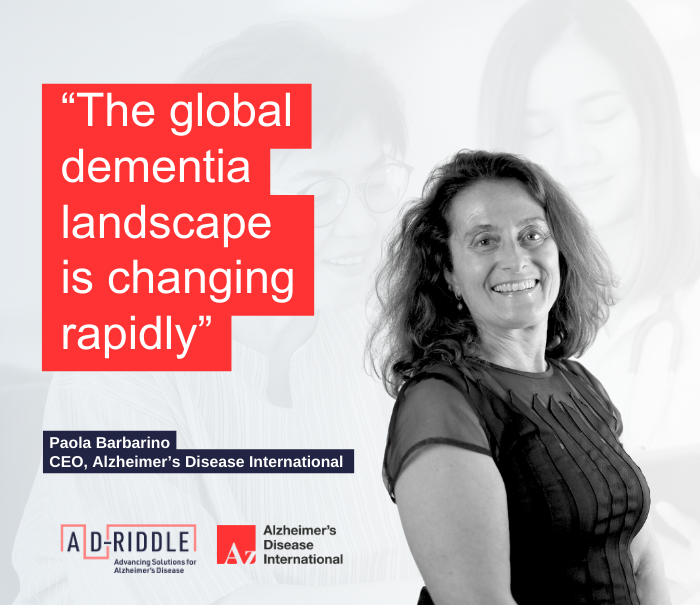Today, 30 January 2024, ADI is pleased to announce its participation and the launch of the AD-RIDDLE project. This project brings together academics, healthcare providers, pharmaceutical and diagnostic companies, regulatory bodies and patient advocacy organisations to bridge the gap between research and implementation, in order to enable timely diagnosis and to ensure people living with Alzheimer’s disease receive interventions at the right time. In addition, the project seeks to empower people with a greater understanding of what they can do to reduce their risk and slow cognitive decline.
Alzheimer’s disease is the most common type of dementia. There are currently 55 million people estimated to be living with dementia globally, a number which is expected to reach over 139 million by 2050. Despite this most people living with dementia do so without a formal diagnosis, with ADI’s World Alzheimer Report 2021 finding that 75% of people living with dementia are undiagnosed. While increasing diagnosis rates is essential to improve access to necessary support and interventions for those living with the condition, research also suggests that it may be possible to delay, slow down or potentially prevent 40% of the cases of dementia globally.
The project aims to produce a series of tools to provide support to clinicians and healthcare systems to address underdiagnosis and barriers to treatment:
- A digital community engagement portal, including self-guided assessment tools, pathways for timely referral to healthcare providers, and resources that are tailored and actionable.
- An array of screening tools for increased accuracy in risk detection and early diagnosis, including digital cognitive assessments and blood-based biomarkers.
- A decision support toolkit for healthcare providers, powered by validated algorithms for differential diagnosis, prevention, and care.
- Personalised therapies, including lifestyle interventions and pharmacological treatments, matching patients to the right interventions at the right time.
While the current project focuses on European countries, ADI CEO, Paola Barbarino hopes this work can be translated to other countries and contexts:
“The global dementia landscape is changing rapidly, and the innovative and personalised interventions being tested by the AD-RIDDLE consortium aim to streamline access to bespoke support for individuals like never before. Our hope at Alzheimer’s Disease International is that this will create a template that in time can be replicated globally.”
ADI will continue to provide updates on this project as it develops.
Learn more about the AD-RIDDLE project on their website: www.ad-riddle.org


